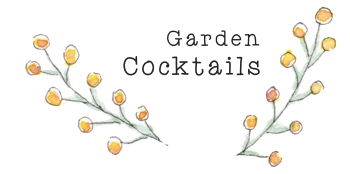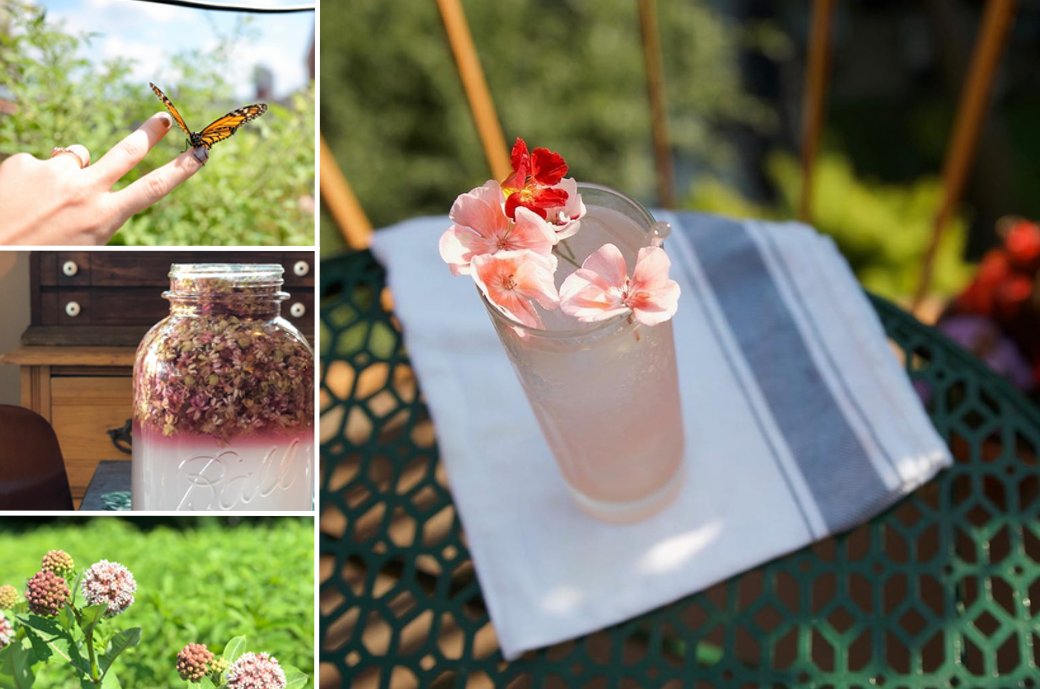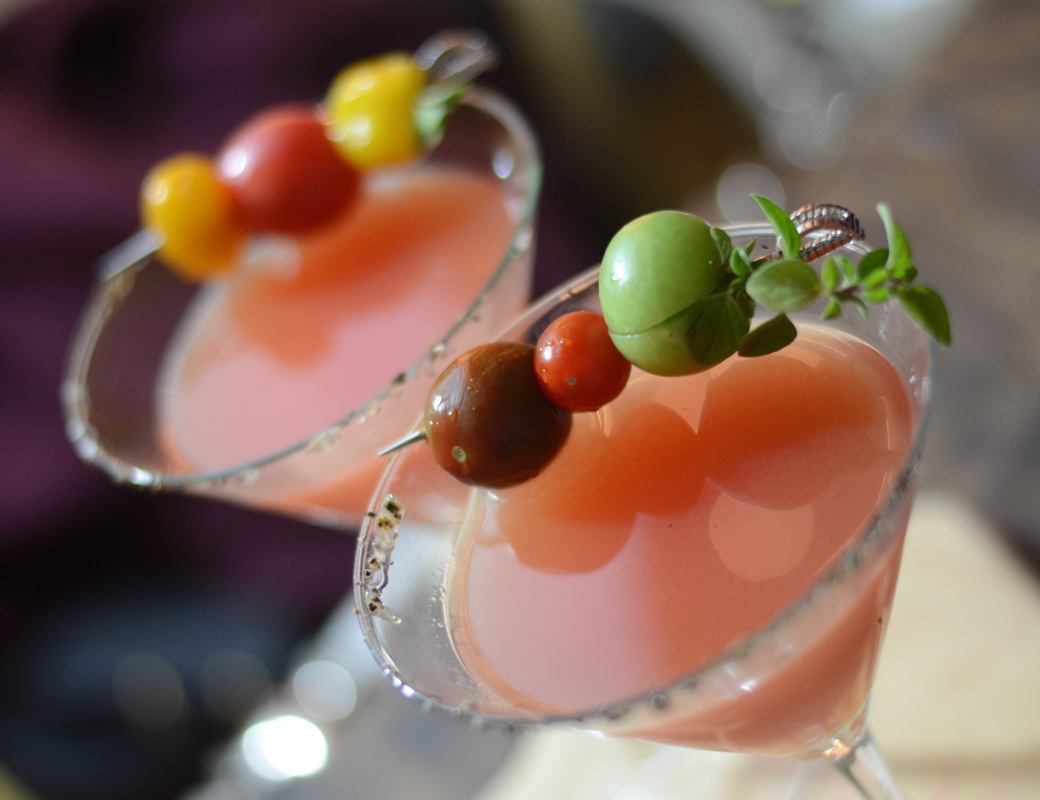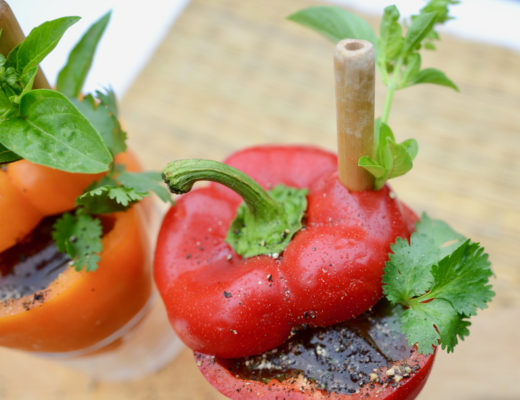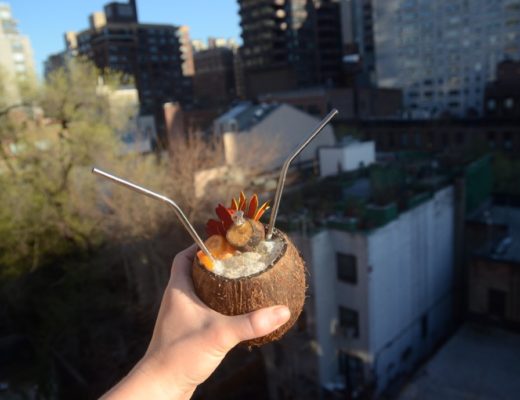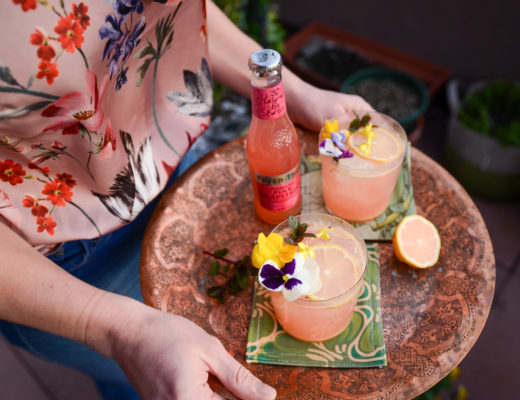When I first started getting passionate about making cocktails, friends often asked, “Ok so you make a lot of drinks, which one is your favorite?” This question always stumped me– I felt frozen and short-circuity with waves of flavors, ingredients, and recipes flooding into my mind. But these days, I have a succinct answer: MILKWEED EVERYTHING.
Common Milkweed truly is one of the most remarkable ingredients I’ve had the pleasure of “discovering.” It’s an incredibly versatile plant that has had many many many culinary uses by indigenous peoples in North America, but today, most of our Euro-centric agricultural ideologies look at milkweed as a weed or an invasive fencerow pest.
THIS IS SO DANG WRONG! Milkweed is a wonder plant!
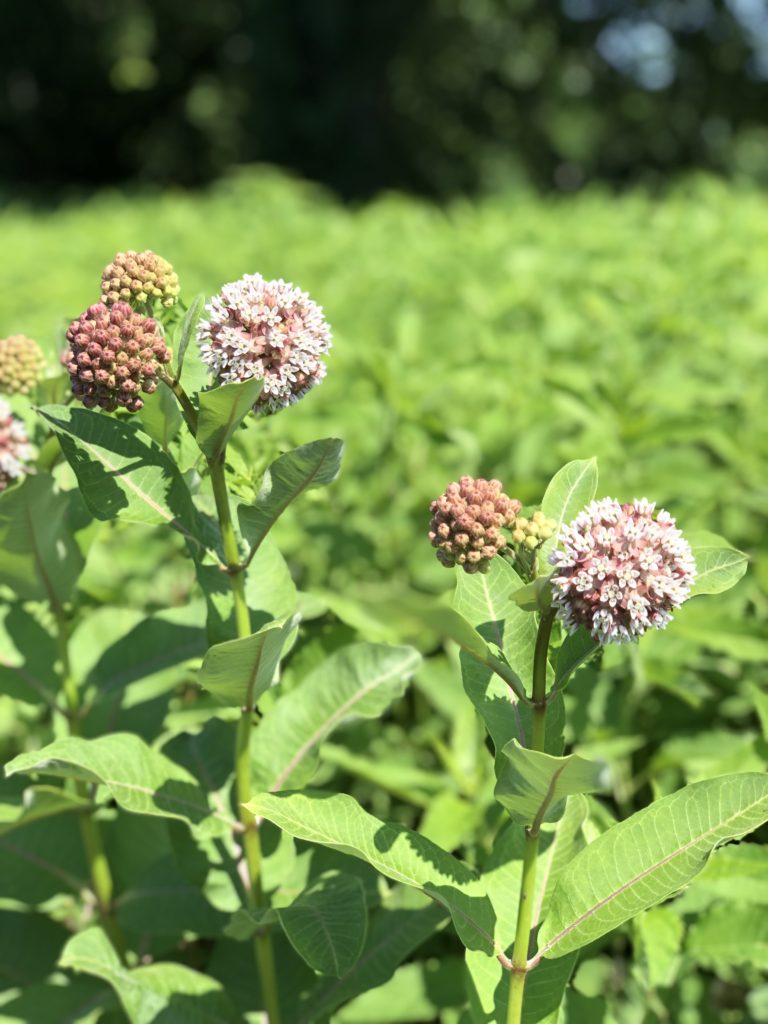
?And before I go any further, I want to clarify one thing. In this post, I am exclusively talking about the pink-flowered Common Milkweed, Asclepias syriaca, and NOT the orange-flowered Butterfly Bush Milkweed, Asclepias tuberosa. Pink flowers = good, orange flowers = not good. ?
Every midsummer, I have to restrain myself from talking too much about milkweed around my friends. (So as not to bore them terribly, haha!) The exception is my friend and coworker, Alexis, aka @BlackForager. Between conversations with Alexis + deep dives into the books of folks like Marie Viljoen, my awe for this plant continues to grow.
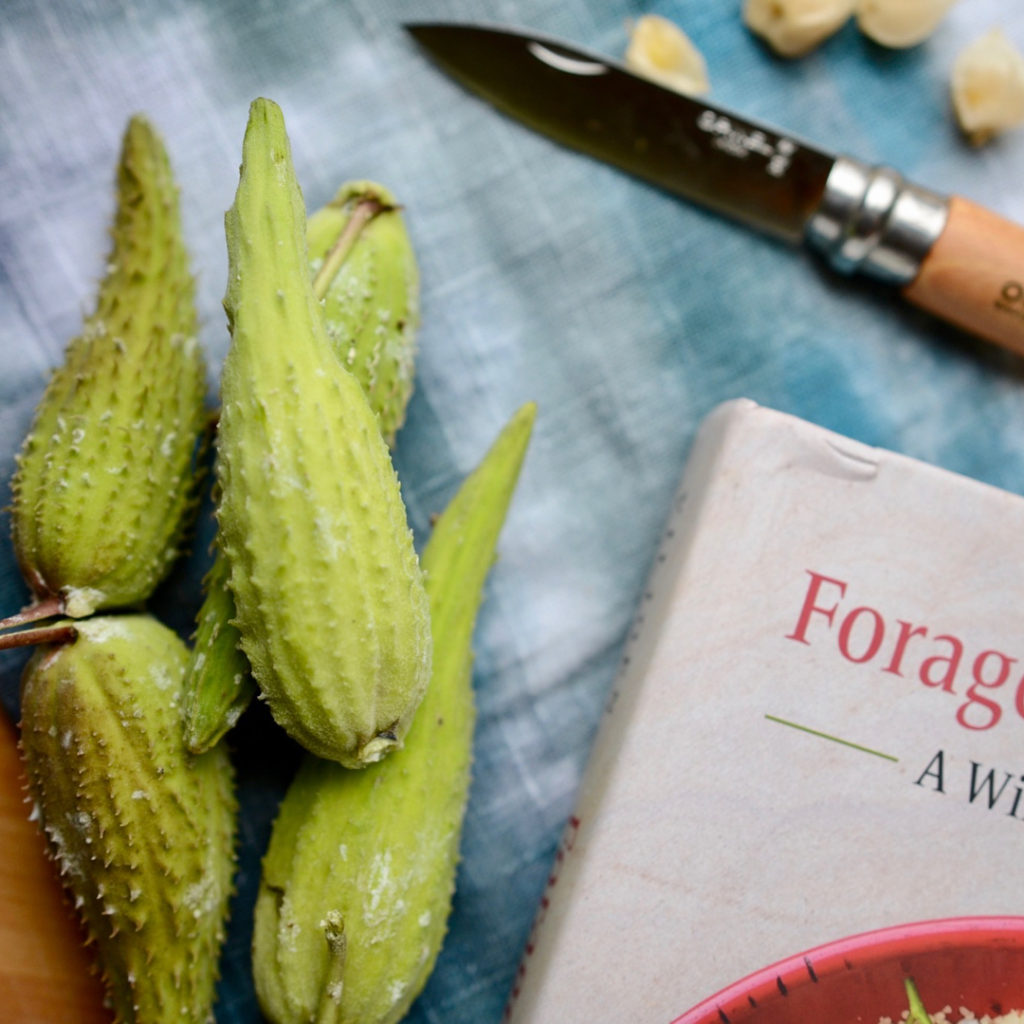
Every stage of the Common Milkweed plant has something edible associated with it, from the young shoots, to the flowers, to the baby seed pods. Beyond that, Common Milkweed has helped humans in other surprising ways. I learned from Sam Thayer & Melissa Price’s newsletter, Forager’s Harvest, that during WWII, American schoolchildren collected the milkweed floss to fill life preservers for the armed forces. “This same floss is being used by a Nebraska company called Ogallalla Down to stuff jackets, comforters, and pillows, and some people believe that it will become an important fiber crop in the future.” (Thank you to Alexis for sharing that newsletter as well as this dissertation on how the Miami people used milkweed.)
BUT THERE’S MORE! Beyond Common Milkweed’s culinary uses, it is ALSO is the most important plant for Monarch butterflies. Monarchs cannot survive without milkweed and the striped caterpillars only eat milkweed plants. AND! Monarch butterflies need milkweed to lay their eggs.

Last summer I was lucky enough to find a teeny caterpillar in one of the blossoms I harvested. I discovered the caterpillar after I’d brought all my foraging home to the city, so I saved milkweed stalks in the fridge and fed him (a him because of the big dots on his wings) until he made a chrysalis and metamorphosed into a butterfly to be released into the world.
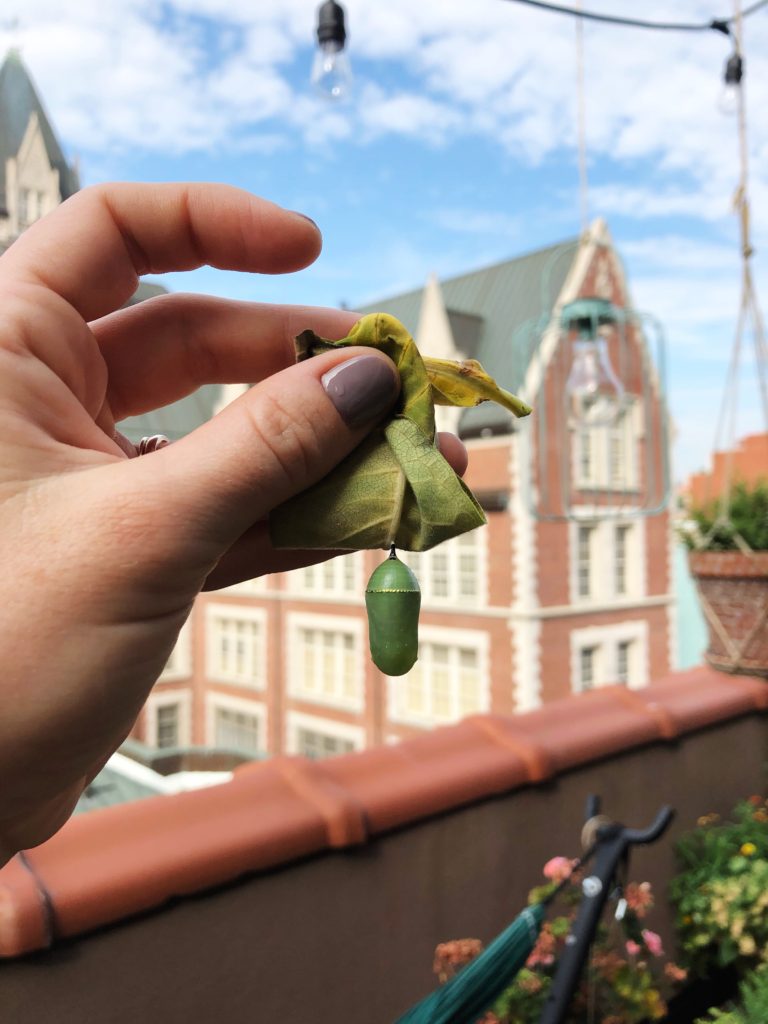
OK! Now back to the cocktails! Although Common Milkweed can be used for so many things, I mostly use the flowers for syrups and cordials and vinegars. Every summer for the last few years I’ve foraged Common Milkweed blossoms and made a variation on Marie’s Common Milkweed Flower Cordial from her book, “Forage, Harvest, Feast.” (I cannot recommend Marie’s book, Forage, Harvest, Feast, enough!)
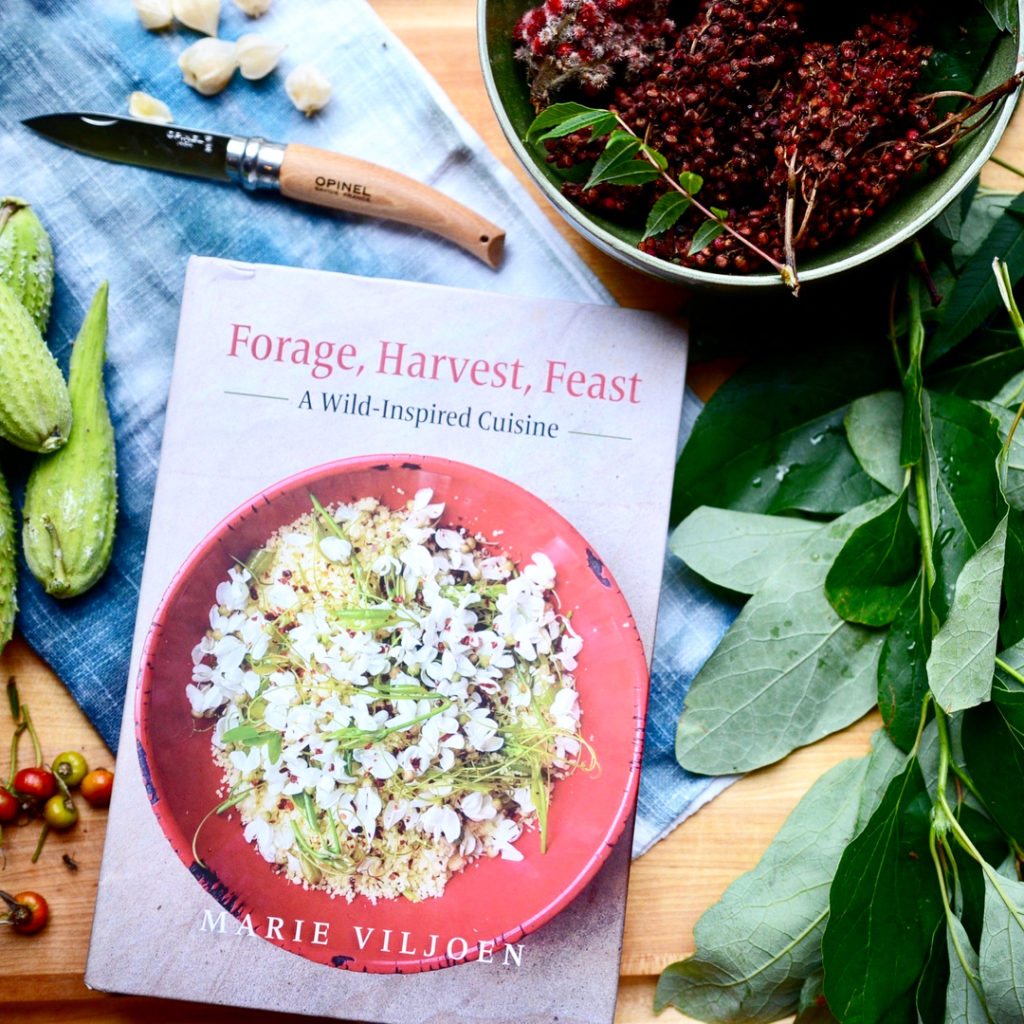
The cordial I make + put into the back of my fridge and forget about it until January when the winter doldrums hit and I need a little pick-me-up. The syrup, I use right away in some of the summer cocktails below!
☝️NOTE: The syrup + cordial recipes below works on Common Milkweed blossoms, but it also works on ALL flowers. I use it for rose, lilac, honeysuckle, everything. 🙂 It’s a great way to get ALL the flavor out of a flower, I’ve noticed simple heated syrups aren’t as fragrant and deep in flavor. Also, when you’re foraging, don’t be a jerk. Remember that you’re sharing these plants with pollinators!

Milkweed Syrup
Ingredients
- 1 cup Common Milkweed flowers
- 3 cups sugar
- 3 cups water
Instructions
After foraging the flower heads, do NOT rinse them. Do allow all of the flowers to sit out in a shaded space outside to allow all of the bugs to escape the buds. Or give them a sturdy shake outdoors. Then, snip all of the buds from the stem of the flower head and mix them with the dry sugar. Cover the container with your buds and sugar and allow it to set for 2 days.
Add the entire sugar + flower mixture to a pot with water on low heat. Heat until the syrup becomes clear.
Strain syrup through a fine mesh strainer, and then again through a double layer of cheesecloth or a coffee filter. Bottle and store in the fridge indefinitely. (It will become bubbly cordial over time if you let it sit in the fridge for months!)
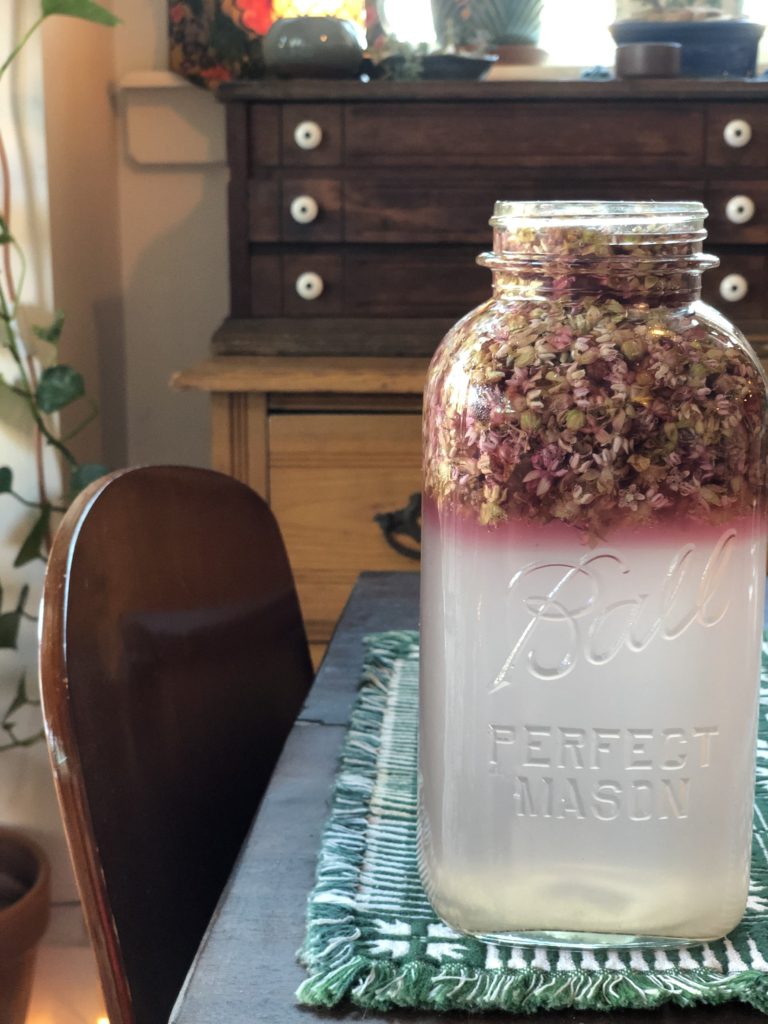
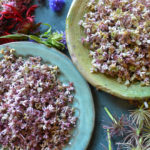
Fermented Common Milkweed Flower Cordial
From Marie Viljoen, author of "Forage, Harvest, Feast!" Find her on IG at @66SquareFeet. Marie's version of the recipe includes instructions on how to make Common Milkweed vinegar, but you'll have to buy her book to get those recipes. 🙂
Ingredients
- 3 cups Common Milkweed Flowers
- 1 pound sugar
- 6 cups water
- 1 peel lemon (optional, I don't often include this!)
Instructions
Use scissors to snip all the milkweed flowers from the tiny stems within the umbel.
Combine the flwoers, sugar, water, and lemon peel (if using) in a clean jar. Stir well to dissolve the sugar. Cover the jar's mouth with a layer of cheesecloth secured with a rubber band or string. You want to keep insects out and let air in.
Leave the jar at room temperature for about 3-6 days. Stir every day until you bottle the cordial. For the first day or three you may notice no change. But bubbles will form as fermentation becomse acive, and you will hear a fizzing when you put your ear to the jar's mouth. The flowers will also rise in the jar as gas pushes them up. Push them down again with a clean spoon.
When it is extremely fizzy, give the cordial one more day. Strain the liquid through a fine-mesh sieve into a clean bowl. Strain again through a double layer of cheesecloth. (I use a coffee filter!)
Pour the strained cordial into clean bottles. Store in the fridge where it will keep indefinitely.
COMMON MILKWEED COCKTAIL RECIPES
Okay! And now for the cocktail recipes. I use milkweed syrup in *so* many cocktails, these are just the recipes I’ve photographed. A good format to remember is:
- 2oz spirit of your choice (Vodka, gin, tequila, rum, bourbon, etc)
- .75oz milkweed syrup, more if you like your drinks sweeter
- 1oz lemon/lime
- + Any other fortified wine or liqueur you want to try, I’ll add a little less syrup if the liqueur is sweet. I love Lillet Blanc with Milkweed.
The cocktails below are just the start, and I’ll continue to add to them over the years as I make more drinks!

Milkweed Tom Collins
Ingredients
- 2 oz gin
- 1 oz lemon juice
- .75 oz milkweed syrup
- soda water, to top
Instructions
Add the milkweed syrup, lemon juice, and gin to a shaker with ice. Shake, strain, and pour into a glass with ice. Top with soda water.

Milkweed Daiquiri
Ingredients
- 1.5 oz white rum
- .5 oz milkweed syrup (Add .75oz if you want this drink to be sweeter)
- 1 oz lime juice
Instructions
Shake with ice, strain and serve up. Garnish with flowers.

Milkweed Caiprinha
Ingredients
- 2 oz Cachaça
- 3 lime wedges
- .75 oz milkweed syrup
Instructions
In a glass gently muddle lime wedges and sugar. Add cachaça and ice cubes. Stir, and garnish with flowers.

Milkweed Margarita
Ingredients
- 2 oz tequila
- .75 oz milkweed syrup or cordial
- 1 oz fresh lime juice
Instructions
Add all ingredients to a shaker with ice. Shake, strain, and serve on ice with flower garnishes!
If you made it this far, I hope I’ve been able to convince you, even a little bit, that Common Milkweed is a super special plant and it should be appreciated for its versatility both as food and cocktail flavoring. 🙂
